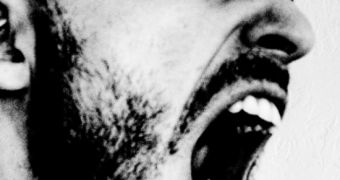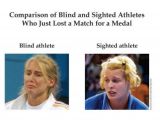For centuries, researchers have been trying to understand exactly what it is that drives people's facial expressions in specific situations, such as a victory or a defeat in a sports game, or in an award ceremony. Most psychologists thus far believed that this behavior was learned through the power of habit, as people learned to replicate the expressions they saw around, in social events. However, scientists at the San Francisco State University recently proved that there was also a genetic factor involved in the process, one that made even blind people react the same as their sighted peers, in similar situations.
In a paper published December 29th in the Journal of Personality and Social Psychology, psychology professor David Matsumoto, from SFSU, concludes that genes are the ones that trigger the same muscular contractions that give the face its expression, in both people who were born blind and regular, sighted humans.
“The statistical correlation between the facial expressions of sighted and blind individuals was almost perfect. This suggests something genetically resident within us is the source of facial expressions of emotion,” says Matsumoto. “Losers pushed their lower lip up as if to control the emotion on their face and many produced social smiles.”
“Individuals blind from birth could not have learned to control their emotions in this way through visual learning so there must be another mechanism. It could be that our emotions, and the systems to regulate them, are vestiges of our evolutionary ancestry. It's possible that in response to negative emotions, humans have developed a system that closes the mouth so that they are prevented from yelling, biting or throwing insults,” the researcher adds.
In order to reach these conclusions, Matsumoto analyzed some 4,800 pictures, taken during the 2004 Summer Olympics and Paralympic Games. He noticed an almost perfect resemblance between the facial expressions of sighted and blind athletes, even when both won or both lost their matches. He also noted that 85 percent of silver medal laureates exhibited “social smiles,” which was true for the blind and the sighted alike.

 14 DAY TRIAL //
14 DAY TRIAL // 
